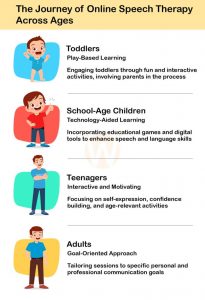Temperaments in Underachievers
By Prapoorna M
Last Updated: November 26, 2021
Every child who doesn’t score well, who can’t understand things well, who doesn’t concentrate enough and seems to be an underachiever is not really a duffer. There could be many reasons behind, which might have got concealed in the fear of judging. Apart from many reasons, their temperament is also a main reason. Two major sources of underachievement within the individuals include temperaments like fear of failure and fear of success. The categorization of achievers and underachievers itself, drains the enthusiasm of a student. Receiving the same feedback either verbally or non-verbally makes the children believe that they are underachievers. There is actually a significant gap between their ability and what they produce and achieve at school/college.
Fear of failure
Underachievers exhibit fear of failure and rarely take risks. Because they fear failure, these learners are inclined to set high goals for themselves and then work only half-heartedly to attain these goals. This allows them to deny any limitations they may have and to dismiss any suggestions that they are actually a failure.
Perfectionism
Underachievers who fear failure may actually be perfectionists who equate their worth as a person with what they produce. When parents give high priority to grades rather than the talent of the kids, children tend to think like this. In the process of being a lovable kid, they feel that disappointing the parents and even others will be a terrible sin. They are afraid of making mistakes and feel that if they disappoint others they become a terrible person. Learning new things takes lots of practice and time and trying to be perfect kills the enjoyment of activities and achievements.
Consequences of fear of failure
It produces a series of negative and adverse thoughts that reduce the child’s actual strengths and potentialities. Fear of failure can even tie down the minds of children and make them mentally weak and tired. Such fears cripple the talent and enthusiasm in kids and make them incapable of achieving anything in life. In fact, they are no different than the kids who can actually reach highest peaks. But this fear of failure makes them underachievers.

Dealing Failure
Children generally fall into four categories when dealing with failure:
Success-Oriented Students
These children love learning for the sake of learning and see failure as a way to improve their ability rather than a mark on their value as a human being. They tend to have parents who praise success and rarely, if ever, warning failure.
Over strivers
These students avoid failure by succeeding but only with extraordinary effort motivated solely by the fear that even one failure will confirm their greatest fear that they’re not perfect.
Failure-avoiding
Children of such kind just try to avoid failing. They will not concentrate on getting success, but don’t want to be a failure. These students believe that making a lot of effort raises expectations and when those expectations are not met, they are termed as failures. This implies that their ability is low and hence decreases their worth. Hence to avoid all this, they choose not to try, which means if they don’t try and still fail, it won’t reflect their ability of not doing well and hence their worth will be intact. In their view, this gives others a scope to think like, “This student didn’t study, otherwise would have scored well” Such children tend to make excuses, postpone things, avoid participations and choose near-impossible tasks.
Failure-accepting
These are the hardest students to motivate because they’ve internalized failure. They believe that their repeated failures are due to the lack of ability and have given up on trying to succeed and thus maintain their self-worth. Any success they might experience is attributed to circumstances outside their control such as the teacher giving them the easiest task in a group project. Both failure-avoiding and failure-accepting students tend to focus on non-academic areas where they can succeed, such as sports or art or even risky behavior, whereas the students, who have the fear of failure, tend to have the parents who highlight the failure rather than the success of the children. Such students tend to believe that they will be loved only when they are academically progressed.
As all these together make an impression on the students that they should never fail, the fear of failure can lead some students to success while some to give up. Hence, it becomes evident that telling students to “buckle-up” when the going gets tough won’t work for many or most of them.
Read more: Tips for parents to improve your underachievers
What needs to be done?
With the raise in suicide rates in the society, it is clearly evident that this pressure of failure is leading the students to even end up their lives. The main problem is that the parents, the schools and the society are missing to make the student learn a fact that failure and success are just a part of life and they do occur in all our lives. Children should understand that failure and success are inevitable things that you cannot always control and should be ready to face them.
Being elders, even we cannot bluntly say that we do win in every attempt we make. Then isn’t it ridiculous to pressurize them? It’s the primary duty of every parent to make the children understand the part of failure in your lives and knowing the art of dealing with it. Quitting life can never make anyone to achieve success over failure. The ultimate goal of education or learning any sport or activity is to learn something and grow. One need not prove oneself in every step and every step one makes is not a decision factor of their worth.
The key is for parents/teachers to know the children well and recognize when they are starting to engage in failure-based behavior.
- Emphasizing effort over ability: Teachers have a tendency of giving more importance to the students’ efforts, rather than his/her innate ability, which actually has to be recognized to know what wonders he/she can do.
- Provide feedback: The feedback that’s given to students should be in such a way that it recognizes and praises the effort made by them. According to the studies, students who receive this kind of feedback are not only more motivated to succeed, but also believe that they can succeed.
- Effort and failure: Parent/teachers should be careful not to tell students to try harder if they failed, particularly if a lot of effort was expended to succeed. They may begin to doubt their abilities and eventually become failure-avoidant or accepting.
- Self-compassion: Encourage students to practice self-compassion when they fail. Self-compassion makes them learn the art of balancing between self-acceptance and accepting the conditions they are in. This obviously gives clarity on how and where to refine ourselves towards success. One can overcome the fear of failure with the help of Self-compassion.
- Build positive relationships with students. This is particularly important for students who are failure-avoidant or accepting. It is usually observed that students try their best to gain the attention of teachers, whom they feel attached to. When such teachers value their academic tasks, the students get highly motivated. Studies have also shown that the students are less motivated when faced the same with the teachers whom they feel don’t care about them.
Tips for parents for reducing fear of failure
See gray areas between perfect and failure: Help your child see the gray areas in-between perfect or a failure. For example, something can have a flaw, and still be beautiful. Getting a B+ is still a great achievement, especially if the child tried his/her best. Make them learn to be happy in all the shades of life. The efforts made have to be recognized. In fact, the improvement shown compared to the previous time should be valued much.

Positive thinking: Make your children replace those self-critical and perfectionist words and thoughts with generously positive statements that fill the listener’s hearts with gladness. As it is said that our thoughts turn into actions and actions into habits, this repetition of positive thoughts inculcates a habit of positive thinking in them. This helps in crowding out the negative self-talk.
Examples of such positive statement:
- Nobody’s perfect!
- All I can do is my best!
- Believing in myself even when I’m making mistakes will help me do better!
Exaggeration of mistakes: Such children see mistakes or imperfections as the most terrible things to do. All the possible negative consequences of failure come to their mind. In most cases, these feared consequences are unlikely and much more severe than the reality. This increases anxiety and interferes with performance. Parent/teachers should keep reminding that one mistake does not equal failure, and that one bad performance does not mean that he or she is worthless.
Bouncing back from failure: Keep reminding about the stories of those famous personalities who fought many times to get it right. Bouncing back should always be there in the journey towards success.
For Example
- Thomas Alva Edison failed a thousand times before he found the right filament for his light bulb.
- Famous basketball player Michael Jordan didn’t make his high school basketball team when he first tried out.
Praise effort:
Every little encouragement is counted. Praise the effort the children put in making the work done. Just don’t give importance to their success. Keep in mind that saying words like, “Wow, I can tell you put a lot of work into this” or “I’m glad you came up to this level” increases confidence in them. This encourages them to do more, later on. Along with that, praise the skills that are not directly related to their achievement (e.g. sharing with others, remembering something important, playing well, or congratulating a winner).
Break down tasks:
Help your child by breaking down large tasks into manageable steps. On a chart or calendar, write down the goal or deadline and work backwards, setting minor goals along the way. Build in rewards for reaching these steps. Also, encourage him or her to decide in advance how much time to spend on a task. Remember, the goal is to complete the task, not to make it perfect.
Setting priorities:
Help and encourage your child to set priorities by analyzing the activities that deserve maximum energy and the ones that require less. Let the child know that it is okay not to give 100% to every task or activity.
Gaining balance:
Make the children learn that the real goal is to do a job which is “good enough” rather than investing more effort in everything. This gives them more time to enjoy with friends, do other activities and hobbies which are also important.
Accept ambiguity:
Model and encourage saying “I don’t know”. Help your child become more comfortable with doubt and not knowing everything.
Share own mistakes: Share your own mistakes and talk about what you learned. Even try to laugh at your own mistakes in front of your child. Humor helps.
Reasonable standards:
Set reasonable standards for your child, such as reducing academic pressure, or scaling back extra-curricular activities or lessons. For example, your child may need to be discouraged from taking all top level classes.
Helping others:
Encourage your child to spend energy by helping others. So he or she learns from others mistakes.
Fear of success:
Academic underachievers also display fear of success. Learners who fear success are concerned that doing well will bring them more unhappiness than will failing to achieve. Limited and unrealistic goals. Young children who fear success might make light of their own abilities even when they are considerable; they set limited, unrealistic goals that are easily within their reach; and they put just enough effort to reach these minimal goals.
Peer acceptance:
Adolescents sometimes fear that their achievement will be envied or resented by their peers. They want to gain peer acceptance through not doing well in their studies. In this case the children’s peers are chief determinants of how much effort they dedicate to their learning. Many prefer not to demonstrate their intelligence, feeling that if they do, friends will not like them as much.
Fear of next performance:
Success can stop children if they fear their next performance won’t result in first place. Children might think that they should be remembered as winners only. Hence they would avoid participating in next competition in the fear of not getting first again.
Parents and Teachers should understand and expect all these probable scenarios to have an idea on the behavior of the children and to guide them properly. If you are a parent and it’s getting tough to understand your child, it’s really a great idea to choose a child-parent or parenting counseling session. It always helps to take an expert opinion rather than hitting some unspecified target while dealing with the budding roses of tomorrow.
Book your Free Consultation Today
Parent/Caregiver Info:
Client’s Details:
* Error Message









